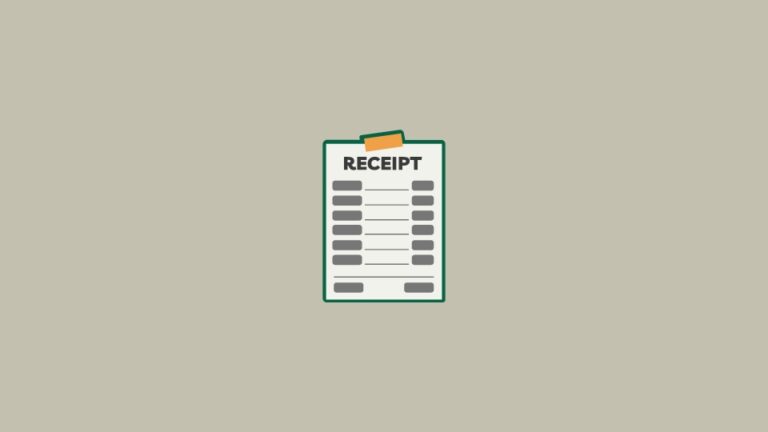How to Collect Unpaid Rent After Tenant Moves out Ontario?
It is aggravating as a landlord to have a renter who fails to pay rent. When collecting overdue rent from renters who have vacated the premises, landlords in Ontario have specific rights. Yet, the procedure might be difficult and time-consuming.
In this post, we will review the procedures landlords in Ontario can take to collect outstanding rent after a tenant moves out. We will also offer advice on how to avoid getting into an unpaid rent scenario in the first place. Landlords can defend their rights and obtain the rent they are owed by following the principles given in this article.
Recognizing Unpaid Rent in Ontario

As an Ontario landlord, it is critical to understand the rules and regulations governing unpaid rent. Landlords in Ontario are not permitted to impose a security deposit. Instead, they may require a last month’s deposit, which is applied to the Tenant’s final month’s rent throughout the tenancy.
It is crucial to note that in Ontario, landlords can only require one entire month’s rent or the rent cost for one renting period as a rent deposit. Your job as a landlord is to ensure you stay within this amount when requesting a deposit from your Tenant.
If a tenant fails to pay the rent, the landlord must apply with the LTB (Landlord and Tenant Board) to request a hearing. In this scenario, the Tenant will be served with a notice of hearing and allowed to defend themselves before the Board.
It should be noted that if a residential lease ends without a new lease being signed, it automatically becomes a month-to-month tenant. This means that the landlord can terminate the tenancy at any time by providing adequate notice to the Tenant.
If the Tenant pays the entire rent owed before the landlord files an application with the LTB, the Notice to End a Tenancy Early for Nonpayment of Rent is null and void, and the Tenant is not required to vacate.
New laws have recently been implemented under the Safeguarding Tenants and Strengthening Community Housing Act 2020 to safeguard tenants’ rights. The maximum fine for violating the Residential Tenancies Act 2006 has been raised to $50,000 for an individual. Landlords must follow overdue rent rules and regulations to avoid penalties or fines.
Landlords can better safeguard their rights and recover any overdue rent owed to them by their tenants if they have a clear awareness of the legislation and processes.
Ways to Recover Unpaid Rent Once a Tenant Leaves Out in Ontario.
Dealing with a tenant who has moved out without paying rent can be a stressful experience if you are a landlord in Ontario. Yet, there are procedures you can take after a renter goes away to collect outstanding rent. Here are some pointers to get you started:
Attempt to locate the Tenant
Before pursuing legal action, make every effort to locate the Tenant. Here are some ideas to get you started:
- Getting in touch with the Tenant’s references and employers: You can contact the Tenant’s references and employers if you have their contact information to see if they have any information on their present whereabouts.
- Utilizing social media to locate the Tenant: Social media networks such as Facebook, Twitter, and LinkedIn can help locate people. You can look up the Tenant’s name and any other information you have about them.
Composing a Demand Letter
If you can’t find the Tenant or they refuse to pay, you’ll need to write a demand letter. Here are some pointers on how to write a demand letter:
- Maintain professionalism and avoid using unsuitable language: The demand letter should be prepared professionally, with no offensive language or threats.
- Provide specific, truthful, and accurate details about the problem: Provide all relevant details about the outstanding rent, such as the amount owed, the day it was due, and any other pertinent information.
- Give a reasonable timetable for resolution: Set a deadline for the renter to pay the unpaid rent and clarify that legal action will be taken if they do not.
- Please specify the amount that must be provided: Make it clear how much unpaid rent must be paid, including any interest or late fines accrued.
- Attach the following documents as evidence: Add any supporting papers, such as a copy of the lease agreement, in your demand letter.
- Avoid any extortion suggestion: Make it clear that the payment demand is not an extortion attempt but rather an attempt to collect unpaid rent owing to you.
Once you’ve written the demand letter, send it registered mail to the Tenant and preserve a copy for your records. Follow up with the Tenant to ensure they received the letter and set a timeframe for them to answer.
Filing a Small Claims Court Case
If the Tenant refuses to pay, a small claims lawsuit will be filed. Here’s what you should know:
- Requirements for bringing a lawsuit in Ontario: You can bring a claim in Small Claims Court if you seek $35,000 or less (or are ready to forgo anything beyond that amount). If your claim is for a debt or liquidated demand in money for up to $35,000 and the interest claimed is less than 35%, you can file it online.
- Getting ready for the courtroom: Fill in the amount you’re requesting, the annualized pre-judgment interest rate claimed, and any relevant facts and grounds before filing your claim.
When you file your claim, the renter will be served with a copy and allowed to respond. If the renter fails to react, you may be able to get a default judgment against them. If the renter does not react, the case will be heard in court, and a decision will be made based on the evidence given.
Engaging the Services of a Collecting Agency
When collecting unpaid rent, landlords may need help with what to do. Using a collection agency is one option to consider. These organizations can assist businesses and people in collecting money for services or products rendered, including overdue rent.
Collection companies may purchase outstanding invoices from you and then engage with the Tenant to collect the unpaid sums. This can be a good solution if you need more time or means to pursue the Tenant personally.
Using a collection agency to recover outstanding rent has various advantages. First and foremost, a collection agency will continue to work for you whether you have many outstanding rent accounts or only a few. In the long term, this can save you time and effort, especially if you have several outstanding accounts to collect on.
Another advantage is that employing a collection agency can reduce employee frustration, as internal personnel often dislikes debt collection. It’s also worth mentioning that most legitimate collection agencies charge on a performance-based basis, meaning they take a portion of any funds recovered. This implies you’re not putting yourself in danger by seeking their assistance.
Using a collection agency, on the other hand, comes with some dangers. The chances of actually collecting the overdue rent through a collection agency are slim, with some estimates estimating that just 20% of accounts in collection get paid off. Before determining whether to engage a collection agency to recover unpaid rent, consider this and weigh the potential benefits and hazards.
Preventing Unpaid Rent Situations
Proper tenant screening:
- Tenant screening is a critical step in ensuring that you have responsible tenants who pay their rent on time. Here are some pointers for tenant screening:
- Do a background check on all prospective tenants to ensure their work, credit history, and criminal history are all correct.
- Request references from past landlords to understand the Tenant’s renting history and dependability.
- Establish a minimum credit score and income criteria for prospective tenants.
- To avoid discrimination allegations, keep your screening procedure consistent.
Establishing explicit expectations in the rental agreement
A rental agreement is a legally enforceable contract between the landlord and the renter. Here are some pointers for establishing clear expectations in a rental agreement:
- Explain the rent amount, due date, and penalties for late or missed payments.
- Indicate which utilities are included and which are not.
- Create maintenance and repair policies, including who is responsible for them.
- Establish ground rules for the Tenant’s behavior, such as noise levels, smoking, and pets.
Effective contact with tenants:
Clear communication is essential for avoiding unpaid rent situations. Here are some pointers for efficient tenant communication:
- Give explicit instructions and reminders for rent payments, including the due date and approved payment methods.
- Respond to tenant questions and concerns.
- Maintain open lines of communication with tenants to encourage them to report any problems with the rental property as soon as possible.
- Establish frequent property inspections to detect and address any maintenance issues before they become serious.
Conclusion
Finally, landlords may find dealing with overdue rent to be a difficult and time-consuming affair. Following proper legal procedures and collecting outstanding rent as quickly as feasible is critical. Landlords can consider attempting to identify the renter, issuing a demand letter, filing a small claims lawsuit, or employing a collection agency.
Landlords should also take preventative actions, such as carefully screening renters, defining clear expectations in rental agreements, and implementing effective communication techniques, to avoid unpaid rent crises in the first place. Landlords can preserve their property and financial interests while maintaining excellent relationships with their tenants if they follow these rules.





